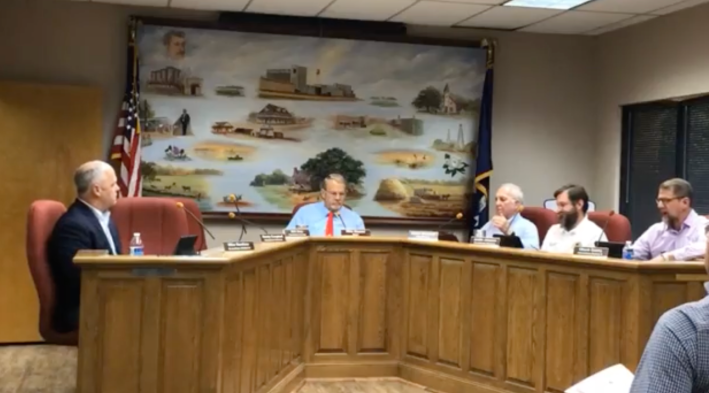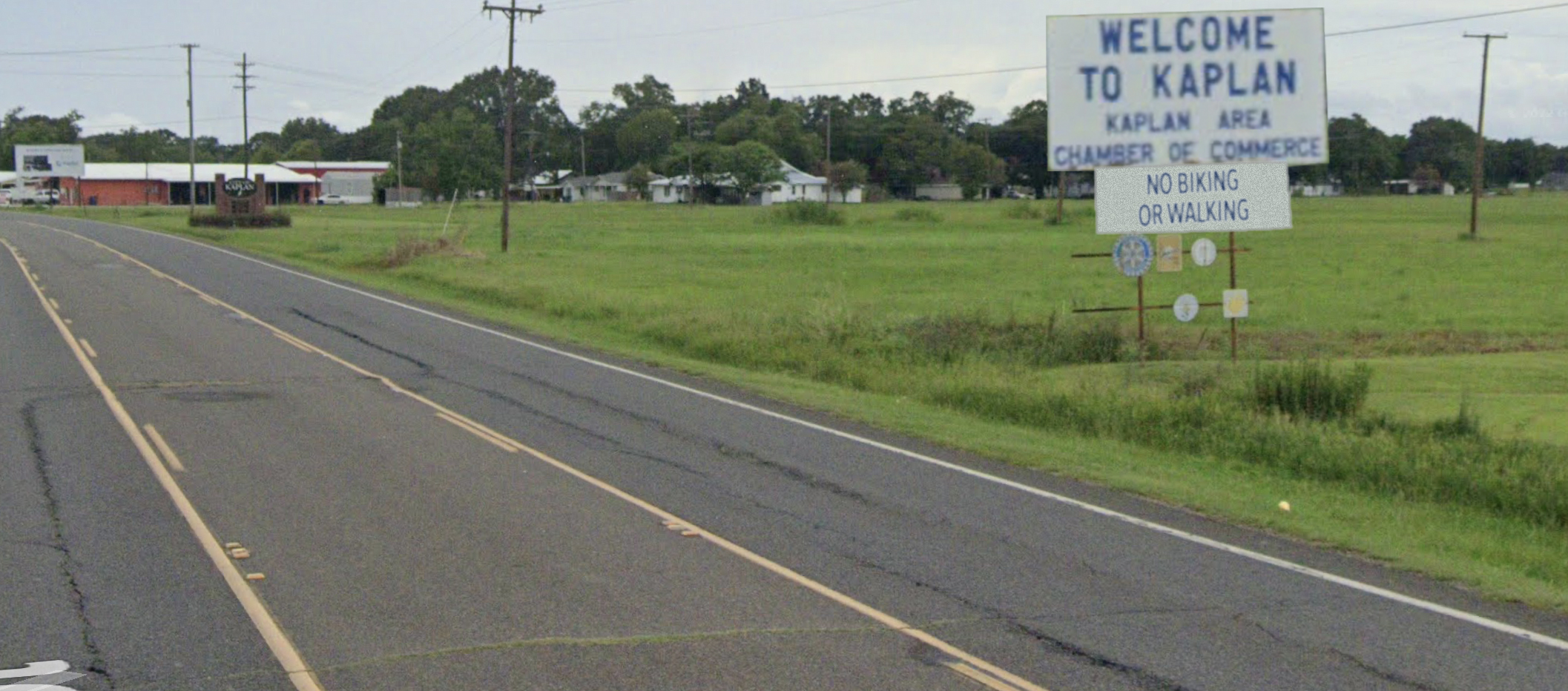Police and city officials in a small Lousiana town have banned biking and walking after 11 p.m., leaving some advocates concerned about government overreach and the law’s potential impact on marginalized communities.
The ordinance in Kaplan, population 4,100 that went into effect on July 1 bans walking or bike riding between 11 p.m. and 4 a.m. The law sprung up from concerns about late night crime and to curb some noise complaints about motorized bicycles, supporters said. The curfew does not affect people in cars.
During a debate on the measure in June, some residents questioned the legality of the motion and its impact on residents, including those who work at night or simply want to hang out with neighbors.

“On the weekends, I walk down to my neighbor's houses, I go drink beer with them,” said Alderman Justin Johnson. “I just don't want to be stopped and have to be questioned because I'm just walking from house to house or something like that.”
All Johnson was able to accomplish was persuading the all white Council to reduce the curfew hours from the original proposal: 10 p.m. to 6 a.m. (The Kaplan Police did not respond to a request for comment.)
Others were not pleased as well.
This “curfew” on people walking or biking is a natural extension of the war being waged against people who don’t use cars to get around. It’s outrageous, discriminatory, and it’s going to end in tragedy. https://t.co/kxWbwllgYd
— Martyn Schmoll (@martynschmoll) July 2, 2023
Unbelievable. Louisiana town bans walking and bicycling from 11 pm to 4 am. Because evidently, people who don't drive have nowhere to go at night. https://t.co/S1vhyQWYWI
— BikinginLA (@bikinginla) July 1, 2023
Police Chief Josh Hardy said the ordinance is specifically about drug trafficking. He added that officers would use their "discretion" and that residents who are merely going about their business will be left along.
"Pretty much if they see they're in a McDonald's uniform, a Sonic uniform, or a convenience store [uniform, Kaplan police officers] are not gonna stop them to see who they are," Hardy told KADN, a local news station.
But some residents questioned the notion that officers in a small Louisiana town would properly exercise their "discretion."
"Critics of the curfew voiced their concerns about the selective enforcement of the ordinance, particularly its potential impact on marginalized communities," reported HOT 107.9.
Police-mandated curfews are nothing new. A similar biking curfew under the auspice of stopping crime was floated in a town in Alberta and quickly nixed. Historically, though, curfews have been around since Jim Crow area, where many towns enacted sunset curfews meant to stop Black people from moving freely, and to bolster segregation in many white communities.
The scope and reach of curfews has widened over the past several decades to include youth, and halt activists who protested after George Floyd’s murder. In 2015, researchers found that curfews for juveniles ended up increasing gun violence by 150 percent.
Another study from 2014 showed that curfews had little impact on decreasing crime and lowering victimizations of young people. And studies have shown that curfews do have negative impacts on Black, Brown and other marginalized communities.
Johnson told Streetsblog that Kaplan suffers from meth-related crime, but he continued to question the need for a curfew for pedestrians and cyclists, though he ended up aligning with his colleagues.
“I don't agree with it," he said. "There's a lot of other people in town that don't agree with it. But if the chief of police requested it ... then, yes, let's try.”
He vowed to stay on top of the curfew going forward.
"If it's not working, we can remove it," he said.






